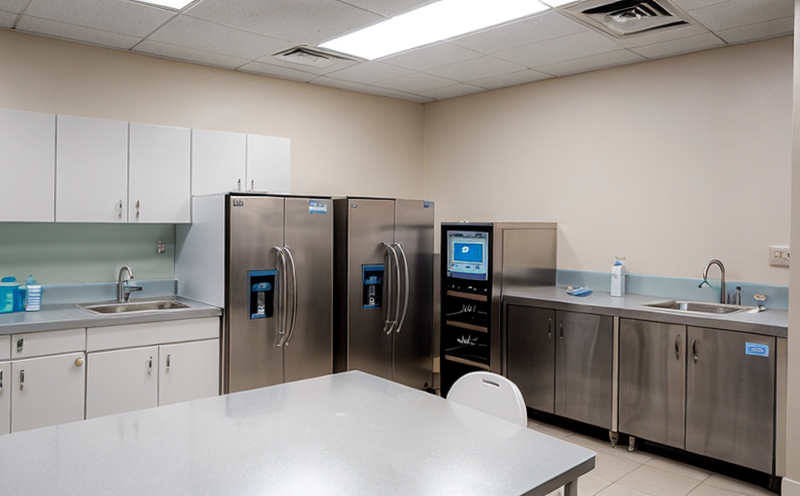ASTM F1980 Accelerated Aging (Shelf-Life)
The ASTM F1980 procedure is a widely recognized method for evaluating the shelf-life stability of medical devices under accelerated aging conditions. This testing protocol accelerates the degradation processes that occur over time, allowing manufacturers to predict long-term performance and reliability more efficiently.
Medical device manufacturers face stringent regulatory requirements ensuring their products are safe and effective throughout their intended shelf life. ASTM F1980 provides a standardized approach for exposing medical devices to controlled environmental stress factors such as temperature, humidity, and light intensity, which mimic real-world conditions over extended periods. This allows engineers to assess the stability of critical components like polymers, metals, or electronics without waiting years for natural aging.
The test involves placing samples in a climate-controlled chamber that simulates various environments commonly encountered during storage and transport. The exposure duration can range from weeks to months, depending on the desired shelf-life prediction. Afterward, the specimens are evaluated using appropriate methods tailored to their specific materials or design, ensuring accurate assessment of any degradation effects.
ASTM F1980 is particularly important for ensuring compliance with regulatory standards such as ISO 17654 and EU MDR (Medical Device Regulation). It helps ensure that devices maintain their intended functionality throughout their shelf life, thereby reducing risks associated with product failure. The results from this testing can guide further manufacturing processes or packaging improvements aimed at extending the useful lifespan of medical devices.
It's crucial to note that while ASTM F1980 provides valuable insights into potential degradation mechanisms, it does not replace long-term storage studies conducted under actual conditions. However, these shorter-duration tests offer critical initial data points for more comprehensive evaluations later on.
Applied Standards
| Standard | Description |
|---|---|
| ASTM F1980-23 | American Society for Testing and Materials standard practice for determining shelf-life stability of medical devices by accelerated aging. |
| ISO 17654:2016(E) | International Organization for Standardization guideline on durability testing of medical devices. |
| EU MDR (Medical Device Regulation) | European Union regulation requiring rigorous validation techniques like ASTM F1980 to ensure device safety and efficacy. |
Benefits
The primary benefit of conducting ASTM F1980 accelerated aging tests lies in the ability to accelerate natural aging processes, providing early indicators of potential issues within a much shorter timeframe than would be possible using actual shelf-life studies. This not only saves time but also resources by identifying any weaknesses or failures before products reach market.
By employing this methodology, manufacturers can make informed decisions regarding material selection, formulation adjustments, and packaging strategies. These optimizations aim to enhance the overall quality and reliability of medical devices while potentially reducing costs associated with post-market recalls due to premature failure.
In addition to these practical advantages, compliance with ASTM F1980 ensures adherence to industry best practices and regulatory expectations. This can be particularly advantageous when navigating complex international markets where stringent standards are enforced by various governing bodies.
Why Choose This Test
- Accelerates natural aging processes for quicker results.
- Saves time compared to long-term shelf-life studies.
- Provides critical early indicators of potential issues in materials or design.
- Supports informed decision-making regarding material selection and packaging strategies.
- Ensures compliance with regulatory standards such as ISO 17654 and EU MDR.
- Promotes higher quality and reliability through optimized product development.





